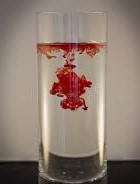Greetings
I was asked how did Christ come?
This was my answer
In 1 John 5:7-9 For there are three that bear witness in heaven: the Father, the Word, and the Holy Spirit; and these three are one.
And there are three that bear witness on earth: the Spirit, the water, and the blood; and these three agree as one.
If we receive the witness of men, the witness of God is greater; for this is the witness of God which He has testified of His Son.
In John 16:12-15, I still have many things to say to you, but you cannot bear them now.
However, when He, the Spirit of truth, has come, He will guide you into all truths; for He will not speak on His own authority, but whatever He hears He will speak; and He will tell you things to come.
He will glorify Me, for He will take of what is Mine and declare it to you.
All things that the Father has are Mine. Therefore I said that He will take of Mine and declare it to you.
Then in 1John 4:6, We are of God. He who knows God hears us; he who is not of God does not hear us. By this, we know the spirit of truth and the spirit of error.
In John 1:17 For the law was given through Moses, but grace and truth came through Jesus the Christ.
Note
That which is born of the flesh is flesh. John 3:6

This is He who came by water and blood--Jesus Christ; not only by water but by water and blood. And it is the Spirit who bears witness because the Spirit is truth. 1 John 5:6
And there are three that bear witness on earth: the Spirit, the water, and the blood; and these three agree as one. 1 John 5:8
But one of the soldiers pierced His side with a spear, and immediately blood and water came out. John 19:34; See Zech 12: 10.

I was asked how did Christ come?
This was my answer
In 1 John 5:7-9 For there are three that bear witness in heaven: the Father, the Word, and the Holy Spirit; and these three are one.
And there are three that bear witness on earth: the Spirit, the water, and the blood; and these three agree as one.
If we receive the witness of men, the witness of God is greater; for this is the witness of God which He has testified of His Son.
In John 16:12-15, I still have many things to say to you, but you cannot bear them now.
However, when He, the Spirit of truth, has come, He will guide you into all truths; for He will not speak on His own authority, but whatever He hears He will speak; and He will tell you things to come.
He will glorify Me, for He will take of what is Mine and declare it to you.
All things that the Father has are Mine. Therefore I said that He will take of Mine and declare it to you.
Then in 1John 4:6, We are of God. He who knows God hears us; he who is not of God does not hear us. By this, we know the spirit of truth and the spirit of error.
In John 1:17 For the law was given through Moses, but grace and truth came through Jesus the Christ.
Note
That which is born of the flesh is flesh. John 3:6

This is He who came by water and blood--Jesus Christ; not only by water but by water and blood. And it is the Spirit who bears witness because the Spirit is truth. 1 John 5:6
And there are three that bear witness on earth: the Spirit, the water, and the blood; and these three agree as one. 1 John 5:8
But one of the soldiers pierced His side with a spear, and immediately blood and water came out. John 19:34; See Zech 12: 10.



